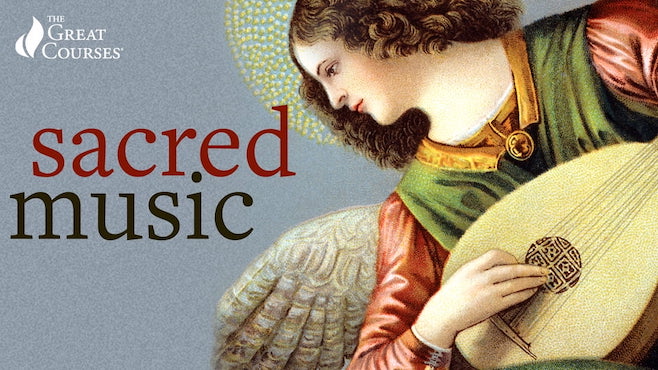The official music of the Roman Catholic Church for hundreds of years was Gregorian chant, which consists of Latin verses sung to a solemn melody without accompaniment. The calm, ethereal tone of Gregorian chant was meant to set the musical stage for the prayers and rituals of the Mass. It was named after Pope Gregory I, who was credited with creating it, although it actually evolved over the course of centuries. Several thousand chants are known today and most of them date from 600-1300 A.D. However, there is virtually no record of the composers who created them.
Because of the role that instruments played in pagan rites, they were frowned upon by the church, and therefore most medieval music was vocal. Instruments, predominately the organ, were incorporated with increasing frequency after about 1100 and eventually became a regular accompaniment to vocals.
I recently discovered a video series that offers compelling commentary on the evolution of sacred music, beginning with the Gregorian chants of the 700s A.D.
Presented by Charles Edward McGuire, Ph.D., a professor of musicology at Oberlin College Conservatory of Music, “The Great Works of Sacred Music” is offered through the Great Courses Signature Collection and is available to stream on Amazon and Kanopy.
The series covers a lot of ground to say the least. I found Episode 5 to be the most interesting as it offers an in-depth look at works by Italian composers such as Giovanni Pierluigi da Palestrina’s “Sicut Cervus,” Claudio Monteverdi’s “Vespro della Beata Virgine” and Giovanni Gabrieli’s “In Ecclesiis.” The episode also covers the important role of Venice’s San Marco Cathedral in the music of the 16th and 17th centuries, in particular, the cori spezzati, a style of music incorporating multiple choirs.
To get to the series’ main page, click here then scroll down through the episodes.
To follow the series on Kanopy, click here.
 Fra Noi Embrace Your Inner Italian
Fra Noi Embrace Your Inner Italian







